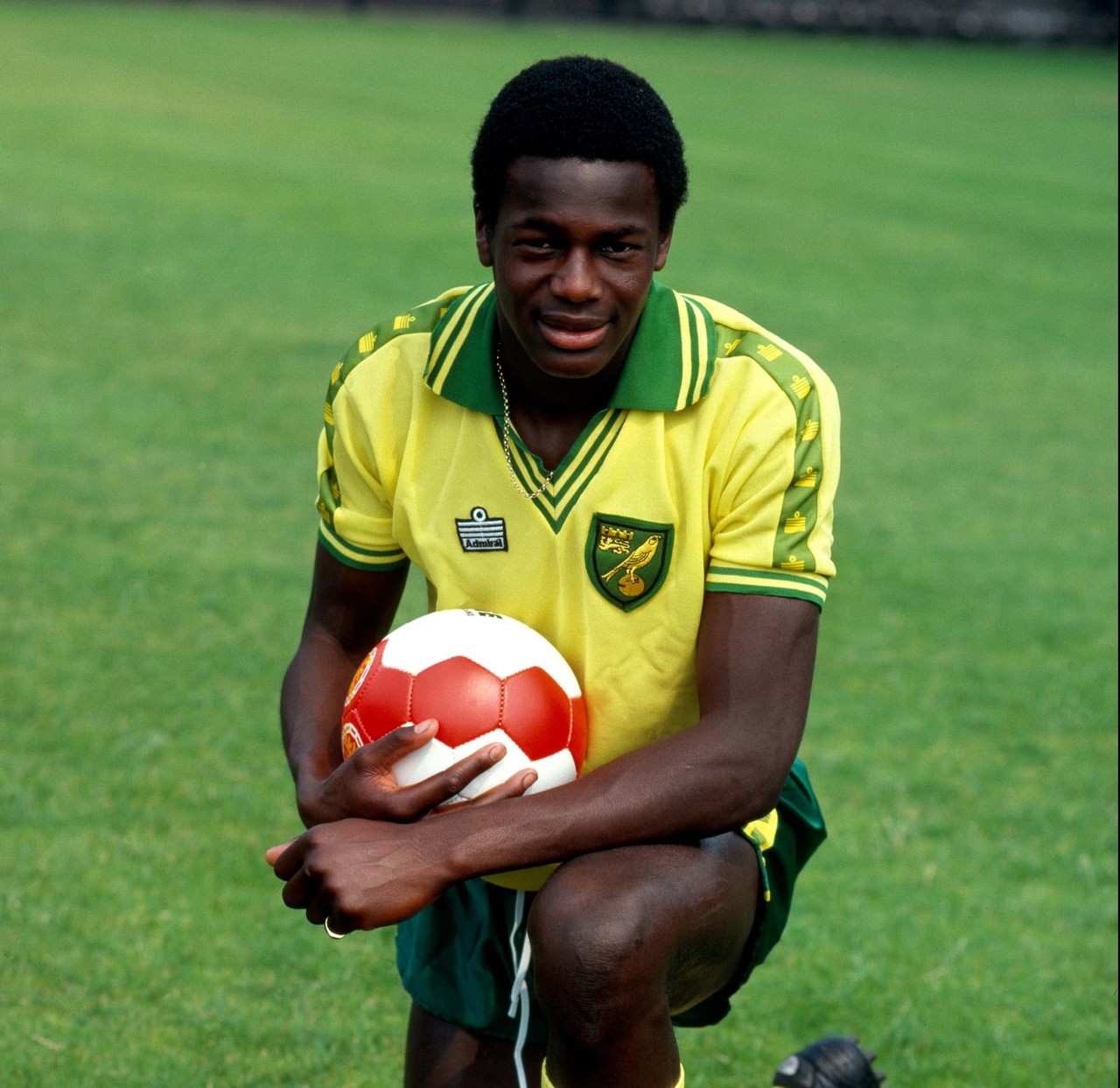The Tragedy of Justin Fashanu
An insight into the openly racist and homophobic atmosphere that passed for public life in Margaret Thatcher's England.

With the ongoing crisis of homophobia in Nigeria, and a succession of high-profile athletes coming out in the past year, it’s well worth remembering Justin Fashanu, the first professional footballer to come out — way back in 1990 — and his tragic suicide in 1997. Our very own Davy Lane has written a rendering of Fashanu’s story that’s well worth your time, an insight into the openly racist and homophobic atmosphere that passed for public life in Margaret Thatcher’s England.
Here’s a couple of excerpts:
On the morning of May 3, 1998, Justin Fashanu was found dead. He had hung himself in a disused garage lock in Shoreditch, East London, about a mile away from where he had been born in Hackney, 37 years prior. He had spent the hour before his death at the Chariots Roman Spa, a local gay sauna. His last words, in a suicide note, were “I hope the Jesus I love welcomes me home.”
And so ended the life of the first openly gay professional soccer player.
When Michael Sam made his recent courageous announcement, there was a sense of him standing on the shoulders of giants, retired gay US sports stars like Billy Bean, Wade Davis, and Dave Kopay. Justin Fashanu had no such mentors. Sam’s coming out was (largely) met with sympathy in the media. His was a highly choreographed and meticulous outing with agents, publicists and America’s premier print publications and broadcasters all onside. As he told the sympathetic New York Times, “I just wanted to own my own truth.” When Justin Fashanu came out in 1990, in a bigoted and bruising England that was staggering through the end of a decade of rule by Margaret Thatcher, Fashanu had no such allies in public relations or the English media. When threatened with an outing, Justin accepted a tabloid newspaper’s meager payoff and gave them all the tawdry gossip they wanted to hear. The truth did not matter. Justin was the first canary in the coalmine, the first to come out of the closet in a toxic era. He was never going to own his own truth.
Justin Fashanu was born in inner-city London, the son of a Nigerian barrister and Guyanese nurse. An absconding father and a mother unable to make ends meet led to Justin and his younger brother, John, being sent to Barnardo’s, a charitable British institution that prepares children for fostering and adoption. Justin was six years old when empty nesters Alf and Betty Jackson of Attleborough, in the pastoral county of Norfolk, about 120 miles northeast of London, agreed to foster the Fashanu brothers.
Justin had been a promising teenage boxer, twice a British Amateur Junior Heavyweight finalist when aged 14 and 15. He could have been a contender, but for the persistence of a scout at local soccer club, Norwich City—a quintessential small town team nicknamed the Canaries–who persuaded him he could have a career in soccer. Justin was signed as an apprentice and spent his school holidays honing his skills with the pros.
…
Gay slurs at football matches were also common in [1980s Britain]. These days there is a Proud Canaries fan club of gay Norwich City supporters. But in Fashanu’s heyday, terms such as “faggot”, “fairy” and “tart” were de rigueur, though they were hurled into the miasma of foul language and other discriminatory discourse that typified English soccer crowds, and most spheres of public culture, at the time. It simply would not have occurred to most followers of the game that a soccer player could actually be gay, let alone be built a like heavyweight boxer.
It was into this primitive social flux that Justin Fashanu flexed his muscles for his first full season with Nottingham Forest. It was to prove an unmitigated disaster. Justin failed to live up to expectations, scoring on only three occasions in 32 appearances in his first and only full season for the former European champions. There are no spectacular goals on his limited highlight reel from that season, but instead a couple of outrageous miscues, with Justin looking chaotic, uncomfortable and seemingly incapable of a meaningful relationship with a football. Fifteen months after his marquee arrival, Justin was traded at a massive loss to cross-town rivals, Notts County, for a fraction of the famous fee Forest had paid Norwich City a year or so earlier.
Forest’s boss Brian Clough wrote in his 1994 autobiography that Fashanu’s ‘goal of the season’ against Liverpool back in 1979 had “conned him out a million pounds”.
Yet the sale of Fashanu for an absurd fraction of his original fee, despite his first season failings, made no financial sense. Was Fashanu being made a scapegoat, an example to the others of the ruthlessness of the sport? Possibly. But surely Nottingham Forest’s catastrophic season could not completely be blamed on the poor form of Justin Fashanu. There were ten other players in Clough’s regular first XI that finished 12th in the 1981-82 season. Yet only Fashanu was shipped out in the off-season fire sale.
Rumours of Fashanu frequenting gay bars in Nottingham rattled Clough. In his autobiography, Clough recounts confronting Fashanu about the whispers, “’Where do you go if you want a loaf of bread?’ I asked him. ‘ A baker’s, I suppose.’ Where do you go if you want a leg of lamb?’ ‘A butcher’s.’ ‘So why do you keep going to that bloody poof’s club?’” Fashanu’s private life was now a matter of in-house ridicule. He was facing the prospect of both barrels from his employers and the crowds: racism and homophobia.



















